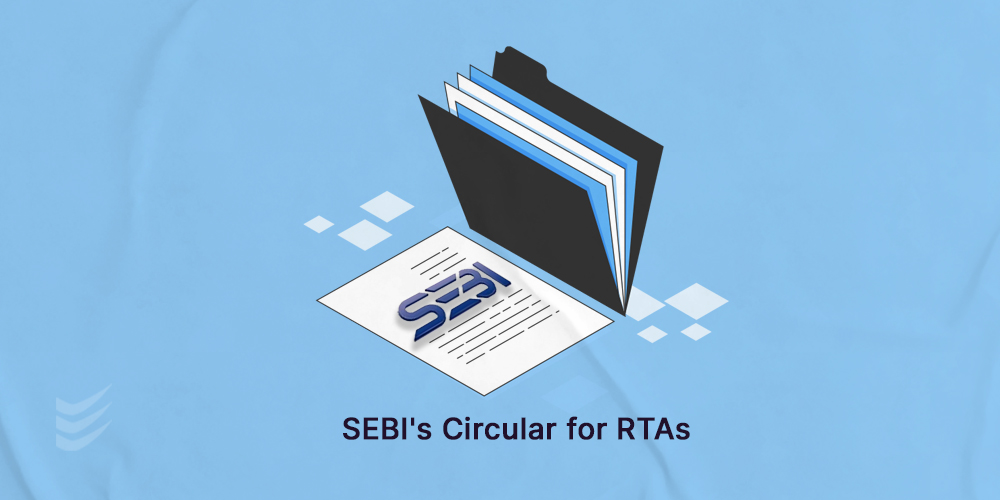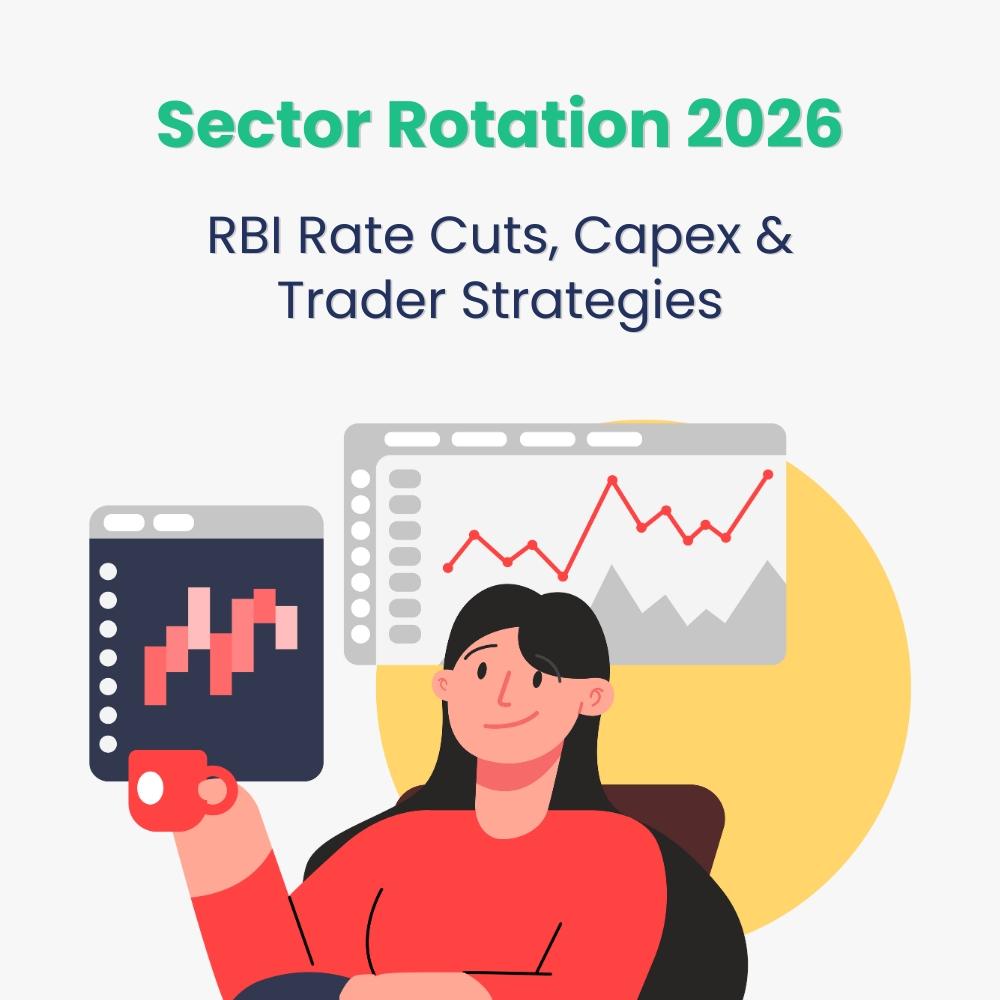SEBI's Circular for RTAs Explained: Insights for Investors

Introduction
On May 7th, 2024, the Securities and Exchange Board of India (SEBI) issued a significant regulatory update in the form of a master circular tailored for all registered registrars to issue and share transfer agents (RTAs). This comprehensive circular encompasses a wide array of facets pertinent to RTAs, ranging from their initial registration processes to delineating their responsibilities, addressing transfer-related concerns, outlining mechanisms for investor grievance redressal, defining investor charter provisions, emphasizing cyber security protocols, and clarifying the role of RTAs within the primary market framework.
This latest pronouncement by SEBI marks a pivotal development in the regulatory landscape governing RTAs, which play a crucial role in facilitating various transactions within the securities market. For investors and traders alike, this circular holds substantial implications and warrants careful examination.
Let's delve deeper into the key aspects elucidated within this latest SEBI master circular to grasp its significance for investors and traders.
Understanding Registrar and Transfer Agents (RTAs) in the Indian Stock Market
Registrar and Transfer Agents (RTAs) are integral entities within the Indian stock market infrastructure responsible for managing and maintaining crucial shareholder information. When individuals engage in purchasing stocks, the intricate task of managing and tracking ownership details falls under the purview of RTAs.
An abbreviation for Registrar and Transfer Agent, RTAs play a pivotal role in ensuring the smooth functioning of transactions and the accuracy of ownership records within the securities market.
Here's how RTAs function:
-
Record Maintenance: RTAs meticulously maintain a comprehensive database detailing the transactions and holdings of every investor. This repository serves as a reliable reference point for determining ownership rights and facilitating smooth transactions.
-
Ownership Updates: Whenever shares are bought or sold, RTAs promptly update the ownership records to reflect the current status accurately. This ensures that the rightful owner is duly acknowledged and recorded for the respective shares.
-
Investor Services: In addition to managing ownership records, RTAs offer a range of essential investor services. These services include processing dividends, facilitating share transfers, and updating investor information as necessary. Through these functions, RTAs contribute significantly to enhancing investor convenience and satisfaction.
-
Regulatory Compliance: RTAs play a crucial role in ensuring that companies adhere to market regulations. They serve as intermediaries between the company and its shareholders, facilitating seamless communication and compliance with regulatory requirements.
Notable examples of RTAs operating within the Indian stock market include CDSL, Karvy, CAMS, among others. These entities play a pivotal role in upholding the integrity and efficiency of the securities market ecosystem.
Now, let's explore the implications of the newest SEBI master circular for Registrar and Transfer Agents (RTAs).
Key Highlights from SEBI's Circular for Registrar and Transfer Agents (RTAs) on May 7th, 2024
-
SEBI issues Master Circulars to consolidate previous directives for Registrars to Issue and Share Transfer Agents (RTAs).
-
Registered RTAs are required to designate an email ID specifically for investor complaint redressal, ensuring its prominent display for investor awareness.
-
RTIs/STAs must furnish a certified true copy of their net worth certificate within three months following the conclusion of each financial year.
-
Compliance officers of RTIs/STAs are mandated to submit semi-annual reports on regulatory adherence and resolution of investor grievances to SEBI.
-
Rights, privileges, obligations, and liabilities established under prior circulars remain unchanged.
-
The main objective of the latest SEBI master circular is to protect the interests of investors and ensure effective regulation of the securities market.
In-Depth Analysis of SEBI's Circular for Registrar and Transfer Agents (RTAs)
Enhancing Investor Grievance Redressal through the SCORES Platform
In an effort to bolster investor awareness and streamline grievance redressal processes, the Securities and Exchange Board of India (SEBI) mandates all registered RTAs to allocate a designated email ID.
Key Inclusions in Investor Grievance Redressal:
-
Designation of Complaint Channels: SEBI's master circular necessitates all registered RTAs to allocate a dedicated email ID exclusively for investor grievance redressal.
-
Promoting Visibility and Awareness: RTIs/STAs are required to prominently display this designated email ID on their websites and promotional materials, aiming to heighten investor awareness.
-
Timely Notifications: A daily alert system for pending complaints will be facilitated through the registered SEBI email ID designated for regulatory communications.
Transitioning to Dematerialisation of Securities
Listed companies are obligated to issue securities in dematerialised form to fulfill various service requests. These requests encompass the issuance of duplicate certificates, claims from the Unclaimed Suspense Account, and other related processes.
To initiate these actions, the securities holder or claimant is required to fill out Form ISR-4, accessible on both the Issuer Companies’ and RTAs’ websites.
Additional General Guidelines for RTAs
In addition to the aforementioned provisions, the SEBI master circular outlines the following general guidelines for RTAs:
Compulsory Requirement of Permanent Account Number (PAN):
PAN acts as the primary identification marker for all stakeholders within the securities market, reinforcing KYC standards and facilitating transaction oversight.
RTAs are obligated to:
-
Incorporate PAN details into client databases and transaction records.
-
Establish systems enabling PAN-based access and inquiries.
-
Verify PAN cards for both existing and new clients.
-
Validate collected information against the Income Tax Department’s online database.
-
Exceptions apply to Central and State Government entities and specific court-appointed officials, subject to verification of their exemption claims.
Preventing the Spread of Unverified Information
RTAs are required to:
-
Establish internal protocols to curb the dissemination of rumors.
-
Limit or prohibit access to blogs, chat forums, and messaging platforms.
-
Maintain comprehensive records of any utilization of these platforms.
-
Ensure that all market-related news undergoes approval by a Compliance Officer before dissemination.
Compliance with SEBI Guidelines on Outsourcing Activities
RTAs are mandated to comply with SEBI's directives regarding the outsourcing of activities.
Key Points include:
-
Core business activities and compliance functions must not be outsourced.
-
Third-party entities are obligated to report suspicious transactions to the Financial Intelligence Unit.
General Guidelines for Addressing Conflicts of Interest
RTAs and their associated individuals are required to:
-
Develop and enforce policies and procedures for identifying and addressing conflicts of interest.
-
Uphold integrity and equitable treatment of clients.
-
Disclose potential conflicts to clients.
-
Implement measures to mitigate opportunities for conflicts.
-
Ensure adherence to regulations and periodic review by the board.
These guidelines complement the current regulatory framework concerning conflict of interest for RTAs.
Submission of Net Worth Certificate
Every registrar to an issue (RTI) or share transfer agent (STA), regardless of their corporate status, is obligated to maintain quarterly statements reflecting capital adequacy requirements for the preceding three financial years.
Furthermore, as per the SEBI master circular, they are also mandated to furnish a certified true copy of their net worth certificate within three months from the conclusion of each financial year.
Periodic Reporting
As per the SEBI circular, the compliance officer of RTIs/STAs is required to submit reports to SEBI, detailing adherence to regulations and resolution of investor complaints. These reports are to be provided biannually, within three months following the conclusion of each half-year period. The RTI and STA boards will review these reports.
Cyber Security Guidelines for RTAs
Cyber security and resilience regulations apply to RTAs managing over 2 crore folios, termed as Qualified RTAs or QRTAs.
Guidelines outlined in Annexure 21 are to be strictly adhered to by QRTAs to ensure cyber security and resilience.
-
Compliance Requirements: QRTAs are mandated to conduct comprehensive cyber audits biannually.
-
The MD/CEO must affirm compliance with SEBI's cyber security regulations by submitting a declaration alongside the cyber audit reports.
-
Advisory on SaaS Solutions: RTAs must exercise stringent control and monitoring over critical systems while ensuring sensitive data remains within the legal boundaries of India.
-
Reporting Obligations: RTAs are obligated to report compliance with the advisory to SEBI, affirming adherence to the circular for Advisory for Financial Sector Organizations regarding Software as a Service (SaaS) based solutions.
SEBI's Master Circular for RTAs and its Impact on Investor Confidence
The SEBI Master Circular for RTAs, issued by the Securities and Exchange Board of India (SEBI), marks a significant development with far-reaching implications for investors. By providing comprehensive guidelines spanning from registration processes to grievance redressal mechanisms, this circular aims to enhance transparency and accountability within the securities market.
For investors, this circular signifies a shift towards a more structured and regulated environment, wherein they can expect greater clarity and consistency in dealings with RTAs. The designation of email IDs specifically for complaint registration streamlines the grievance resolution process, offering investors easier access to seek redressal for any issues they encounter. This initiative aligns with SEBI's overarching goal of fortifying the regulatory framework and fostering an environment conducive to the interests of both investors and market participants.
In essence, the SEBI Master Circular for RTAs underscores the regulatory body's commitment to bolstering investor protection and confidence, thereby contributing to the overall integrity and efficiency of the securities market ecosystem.
For the Latest Information, Refer to: SEBI Report
Frequently Asked Questions
-
What are the various categories of RTAs?
There are two categories of RTAs:
-
Category I: Participating in tasks as both a registrar to an issue and a share transfer agent.
-
Category II: Engaging in the activity either as a registrar to an issue or as a share transfer agent.
-
Who qualifies as a Qualified Registrar and Transfer Agent (QRTA)?
RTAs managing more than 2 crore folios related to listed companies are classified as QRTA.
-
Is registration with SEBI mandatory for RTAs?
Yes, RTAs offering services to listed companies are required to obtain registration with SEBI under section 12(1) of the SEBI Act, 1992, in accordance with the regulations established under this Act.
-
Where can I access information regarding regulatory actions taken by SEBI against the RTA?
Information concerning any regulatory actions taken by SEBI is accessible to the public via the SEBI website under the section titled "Enforcement”.
-
What does SEBI's circular for RTAs entail?
A: SEBI's circular for RTAs, issued on May 7th, 2024, encompasses a wide range of guidelines pertinent to the functioning of Registrar and Transfer Agents. These guidelines cover aspects such as registration processes, responsibilities, transfer-related matters, grievance redressal mechanisms, investor charter provisions, cyber security protocols, and the role of RTAs in the primary market framework.



